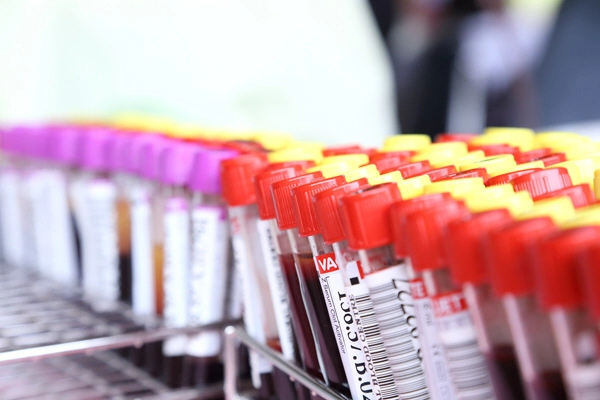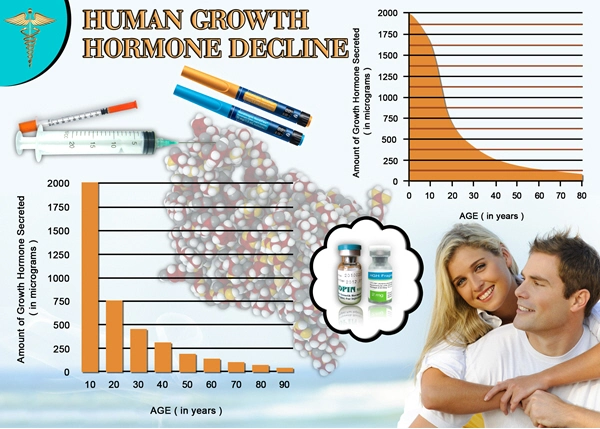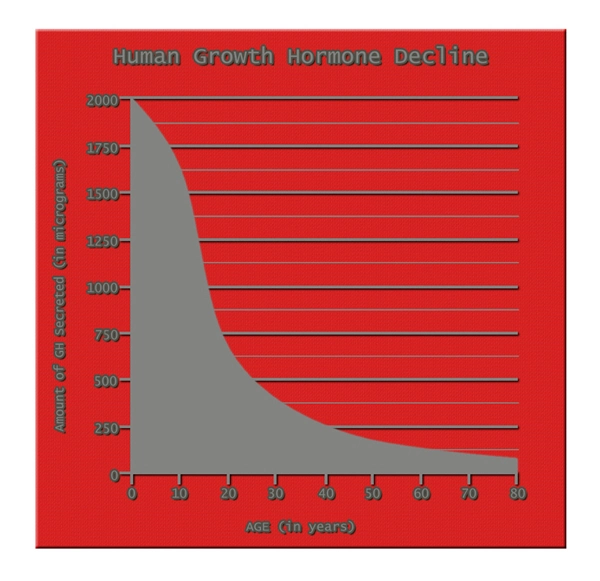Introduction to Hypopituitarism and Prostate Cancer
Hypopituitarism, a condition characterized by the decreased production of one or more of the pituitary hormones, can have profound effects on overall health, including the development and progression of prostate cancer. Prostate cancer, one of the most common cancers among American males, presents a significant health challenge. Understanding the interplay between these two conditions is crucial for effective management and treatment.
The Role of Pituitary Hormones in Prostate Health
The pituitary gland, often referred to as the "master gland," plays a pivotal role in regulating various bodily functions through the secretion of hormones. Among these, growth hormone (GH) and luteinizing hormone (LH) are particularly relevant to prostate health. GH influences cellular growth and metabolism, while LH stimulates the production of testosterone, which is known to affect prostate tissue. In cases of hypopituitarism, the deficiency of these hormones can lead to altered prostate function and potentially increase the risk of cancer development.
Hypopituitarism and Its Impact on Prostate Cancer Risk
Research has indicated that hypopituitarism may influence the risk of developing prostate cancer. A deficiency in GH, for instance, can lead to changes in insulin-like growth factor 1 (IGF-1) levels, which have been linked to prostate cancer progression. Similarly, reduced LH levels can result in lower testosterone production, which, paradoxically, might either protect against or contribute to prostate cancer, depending on the stage and type of the cancer.
Clinical Observations and Studies
Clinical studies have provided insights into the relationship between hypopituitarism and prostate cancer. A study published in the *Journal of Clinical Endocrinology & Metabolism* found that men with hypopituitarism had a lower incidence of prostate cancer compared to the general population. However, this protective effect was not uniform across all types of prostate cancer, suggesting that the impact of hypopituitarism on prostate health is complex and multifaceted.
Management and Treatment Considerations
For American males diagnosed with both hypopituitarism and prostate cancer, treatment strategies must be carefully tailored. Hormone replacement therapy (HRT) for hypopituitarism can be beneficial but must be approached with caution, as it may influence prostate cancer progression. For instance, testosterone replacement therapy, which might be necessary for those with low LH levels, requires close monitoring to prevent exacerbating prostate cancer.
The Importance of Regular Screening
Given the potential link between hypopituitarism and prostate cancer, regular screening becomes even more critical for American males with this condition. Early detection of prostate cancer can significantly improve outcomes. The American Cancer Society recommends that men discuss prostate cancer screening with their healthcare provider starting at age 50, or earlier if they have risk factors such as a family history of the disease or African American heritage.
Lifestyle and Preventive Measures
In addition to medical interventions, lifestyle modifications can play a role in managing both hypopituitarism and prostate cancer. A balanced diet rich in fruits, vegetables, and whole grains, along with regular physical activity, can help maintain overall health and potentially reduce the risk of cancer. Moreover, avoiding smoking and limiting alcohol consumption are essential preventive measures.
Conclusion: Navigating the Complexities
The relationship between hypopituitarism and prostate cancer in American males is intricate and requires a nuanced approach to diagnosis and treatment. By understanding the hormonal influences and maintaining regular health screenings, men can better manage these conditions. Collaborative efforts between endocrinologists and oncologists are essential to develop personalized treatment plans that address the unique needs of each patient. As research continues to evolve, so too will our understanding and ability to mitigate the impact of these health challenges on American males.

- Unraveling the Link Between Hypopituitarism and Metabolic Syndrome in American Males [Last Updated On: March 9th, 2025] [Originally Added On: March 9th, 2025]
- Hypopituitarism in American Men: Impacts and Management Strategies [Last Updated On: March 11th, 2025] [Originally Added On: March 11th, 2025]
- Unveiling the Cardiovascular Risks Associated with Hypopituitarism in American Males [Last Updated On: March 12th, 2025] [Originally Added On: March 12th, 2025]
- Unveiling the Cardiovascular Implications of Hypopituitarism in American Males [Last Updated On: March 16th, 2025] [Originally Added On: March 16th, 2025]
- Unraveling the Connection: Hypopituitarism and Uterine Fibroids in American Males [Last Updated On: March 16th, 2025] [Originally Added On: March 16th, 2025]
- Exploring Hypopituitarism's Impact on Vaginal Health and the Female Reproductive System [Last Updated On: March 16th, 2025] [Originally Added On: March 16th, 2025]
- Unraveling the Hormonal Link Between Hypopituitarism and Breast Cancer in American Males [Last Updated On: March 16th, 2025] [Originally Added On: March 16th, 2025]
- Hypopituitarism in American Males: Cognitive Impacts and Management Strategies [Last Updated On: March 17th, 2025] [Originally Added On: March 17th, 2025]
- Surgery for Hypopituitarism and Pituitary Tumors in American Males: Benefits and Risks [Last Updated On: March 18th, 2025] [Originally Added On: March 18th, 2025]
- Hypopituitarism's Impact on Skin Health in American Males: Symptoms, Diagnosis, and Management [Last Updated On: March 18th, 2025] [Originally Added On: March 18th, 2025]
- Hypopituitarism in American Males: Cancer Risks and Management Strategies [Last Updated On: March 19th, 2025] [Originally Added On: March 19th, 2025]
- Hypopituitarism in American Males: Managing Depression and Anxiety [Last Updated On: March 19th, 2025] [Originally Added On: March 19th, 2025]
- Hypopituitarism in American Men: Hormonal Imbalance and Sleep Disturbance Effects [Last Updated On: March 20th, 2025] [Originally Added On: March 20th, 2025]
- Hypopituitarism and Obesity in American Males: Diagnosis, Management, and Hormonal Links [Last Updated On: March 20th, 2025] [Originally Added On: March 20th, 2025]
- Hypopituitarism and Autoimmune Disorders: Implications for American Males [Last Updated On: March 20th, 2025] [Originally Added On: March 20th, 2025]
- Multidisciplinary Care Essential for Managing Hypopituitarism in American Males [Last Updated On: March 21st, 2025] [Originally Added On: March 21st, 2025]
- Hypopituitarism in American Males: Impact on Eye Health and Visual Impairments [Last Updated On: March 21st, 2025] [Originally Added On: March 21st, 2025]
- Hypopituitarism in American Males: Impact on Kidney Function and Management Strategies [Last Updated On: March 21st, 2025] [Originally Added On: March 21st, 2025]
- Hypopituitarism in Aging American Males: Symptoms, Impact, and Management Strategies [Last Updated On: March 21st, 2025] [Originally Added On: March 21st, 2025]
- Hypopituitarism and Allergies: Exploring Hormonal Impacts on Immune Response in American Males [Last Updated On: March 22nd, 2025] [Originally Added On: March 22nd, 2025]
- Hypopituitarism's Impact on Gastrointestinal Health in American Males [Last Updated On: March 22nd, 2025] [Originally Added On: March 22nd, 2025]
- Hypopituitarism and Anemia: Erythropoietin Deficiency's Role in American Males [Last Updated On: March 22nd, 2025] [Originally Added On: March 22nd, 2025]
- Hypopituitarism's Impact on Muscle Strength in American Males: Causes and Management [Last Updated On: March 23rd, 2025] [Originally Added On: March 23rd, 2025]
- Hypopituitarism and Hair Loss: Impacts and Treatments for American Males [Last Updated On: March 23rd, 2025] [Originally Added On: March 23rd, 2025]
- Hypopituitarism's Impact on Asthma in American Males: Hormonal Links and Management [Last Updated On: March 23rd, 2025] [Originally Added On: March 23rd, 2025]
- Hypopituitarism and Hearing Loss: Exploring the Link in American Males [Last Updated On: March 23rd, 2025] [Originally Added On: March 23rd, 2025]
- Exploring the Link Between Hypopituitarism and MS in American Males: Clinical Insights [Last Updated On: March 23rd, 2025] [Originally Added On: March 23rd, 2025]
- Hypopituitarism and Dyslipidemia: Hormonal Impacts on Lipid Profiles in American Males [Last Updated On: March 23rd, 2025] [Originally Added On: March 23rd, 2025]
- Hypopituitarism's Link to Alzheimer's in American Males: Hormonal Imbalances and Cognitive Decline [Last Updated On: March 24th, 2025] [Originally Added On: March 24th, 2025]
- Hypopituitarism and Migraines in American Males: Hormonal Fluctuations and Management Strategies [Last Updated On: March 24th, 2025] [Originally Added On: March 24th, 2025]
- Hypopituitarism and Hypertension: Impacts and Management in American Males [Last Updated On: March 24th, 2025] [Originally Added On: March 24th, 2025]
- Hypopituitarism in American Males: Hormonal Impact on Joint Health and Management Strategies [Last Updated On: March 24th, 2025] [Originally Added On: March 24th, 2025]
- Hypopituitarism's Impact on Liver Health in American Males: Mechanisms and Management [Last Updated On: March 24th, 2025] [Originally Added On: March 24th, 2025]
- Hypopituitarism and Stroke Risk in American Males: Hormonal Monitoring and Prevention Strategies [Last Updated On: March 24th, 2025] [Originally Added On: March 24th, 2025]
- Hypopituitarism's Impact on Osteoarthritis in American Males: A Comprehensive Overview [Last Updated On: March 24th, 2025] [Originally Added On: March 24th, 2025]
- Hypopituitarism's Impact on Immune Function in American Males: Diagnosis and Management [Last Updated On: March 24th, 2025] [Originally Added On: March 24th, 2025]
- Hypopituitarism's Impact on Pancreatitis: Risks and Management for American Males [Last Updated On: March 24th, 2025] [Originally Added On: March 24th, 2025]
- Hypopituitarism and Seizures in American Males: Neurological Links and Management [Last Updated On: March 24th, 2025] [Originally Added On: March 24th, 2025]
- Hypopituitarism and Diabetes: Impact on Glucose Metabolism in American Males [Last Updated On: March 25th, 2025] [Originally Added On: March 25th, 2025]
- Hypopituitarism and Chronic Fatigue Syndrome: Overlap and Impact on American Men [Last Updated On: March 25th, 2025] [Originally Added On: March 25th, 2025]
- Hypopituitarism in American Males: Cardiovascular Risks and Management Strategies [Last Updated On: March 25th, 2025] [Originally Added On: March 25th, 2025]
- Autoimmune Link Between Hypopituitarism and RA: Implications for American Males [Last Updated On: March 25th, 2025] [Originally Added On: March 25th, 2025]
- Hypopituitarism and Fibromyalgia: Overlapping Symptoms and Management in American Males [Last Updated On: March 26th, 2025] [Originally Added On: March 26th, 2025]
- Hypopituitarism and Pituitary Cancer: Symptoms, Detection, and Management in American Males [Last Updated On: March 26th, 2025] [Originally Added On: March 26th, 2025]
- Hypopituitarism and Gallbladder Disease: Emerging Links and Implications for American Males [Last Updated On: March 26th, 2025] [Originally Added On: March 26th, 2025]
- Hypopituitarism and Breast Cancer in American Males: Hormonal Links and Clinical Insights [Last Updated On: March 26th, 2025] [Originally Added On: March 26th, 2025]
- Hypopituitarism and Sjögren's Syndrome: Effects on Exocrine Glands in American Males [Last Updated On: March 27th, 2025] [Originally Added On: March 27th, 2025]
- Hypopituitarism's Role in Parkinson's Disease Progression and Management [Last Updated On: March 27th, 2025] [Originally Added On: March 27th, 2025]
- Exploring Hypopituitarism and Lupus Connection in American Males: Clinical Insights [Last Updated On: March 27th, 2025] [Originally Added On: March 27th, 2025]
- Hypopituitarism in American Males: Impacts on Kidney Health and Management Strategies [Last Updated On: March 28th, 2025] [Originally Added On: March 28th, 2025]
- Hypopituitarism and Gout: Uric Acid Link in American Males [Last Updated On: March 28th, 2025] [Originally Added On: March 28th, 2025]
- Autoimmune Links Between Hypopituitarism and Celiac Disease in American Males [Last Updated On: March 28th, 2025] [Originally Added On: March 28th, 2025]
- Hypopituitarism and Liver Cirrhosis: Impact on Hepatic Function in American Males [Last Updated On: March 29th, 2025] [Originally Added On: March 29th, 2025]
- Hypopituitarism and IBD Link in American Males: Gastrointestinal and Hormonal Interplay [Last Updated On: March 29th, 2025] [Originally Added On: March 29th, 2025]
- Hypopituitarism and Adrenal Cancer: Endocrine System Interplay and Management in American Males [Last Updated On: March 29th, 2025] [Originally Added On: March 29th, 2025]
- Hypopituitarism and Ovarian Cancer: Exploring Gynecological Links in American Males [Last Updated On: March 30th, 2025] [Originally Added On: March 30th, 2025]
- Hypopituitarism's Impact on Thyroid Cancer Risk in American Males [Last Updated On: March 30th, 2025] [Originally Added On: March 30th, 2025]
- Hypopituitarism and Testicular Cancer: Impacts on Male Fertility and Preservation Strategies [Last Updated On: March 31st, 2025] [Originally Added On: March 31st, 2025]
- Hormonal Links Between Hypopituitarism and Endometriosis in American Males Explored [Last Updated On: April 1st, 2025] [Originally Added On: April 1st, 2025]
- Hypopituitarism and Uterine Fibroids: Exploring Gynecological Links in American Males [Last Updated On: April 1st, 2025] [Originally Added On: April 1st, 2025]
- Hypopituitarism and PCOS: Impacts, Diagnosis, and Management in Women's Health [Last Updated On: April 2nd, 2025] [Originally Added On: April 2nd, 2025]
- Hypopituitarism's Impact on Penile Health in American Males: Diagnosis and Management [Last Updated On: April 6th, 2025] [Originally Added On: April 6th, 2025]
- Hypopituitarism's Impact on Male Vaginal Health: Hormonal Imbalances and Comprehensive Care [Last Updated On: April 7th, 2025] [Originally Added On: April 7th, 2025]
- Hypopituitarism and Premature Ejaculation: Exploring Links and Treatment in American Males [Last Updated On: April 8th, 2025] [Originally Added On: April 8th, 2025]
- Hypopituitarism's Impact on Male Fertility: Diagnosis, Management, and Treatment for American Men [Last Updated On: April 10th, 2025] [Originally Added On: April 10th, 2025]
- Hypopituitarism and Cervical Cancer: The Crucial Role of Hormonal Monitoring [Last Updated On: April 10th, 2025] [Originally Added On: April 10th, 2025]
- Hypopituitarism and Erectile Dysfunction: Hormonal Links and Treatment Strategies [Last Updated On: April 10th, 2025] [Originally Added On: April 10th, 2025]
- Hypopituitarism and Preeclampsia: The Critical Need for Hormonal Monitoring in Pregnancy [Last Updated On: April 10th, 2025] [Originally Added On: April 10th, 2025]
- Hypopituitarism and Postpartum Depression: Impacts on Mental Health in American Males [Last Updated On: April 12th, 2025] [Originally Added On: April 12th, 2025]
- Hypopituitarism in American Males: Hormonal Impacts on Fertility and Miscarriage Risk [Last Updated On: April 12th, 2025] [Originally Added On: April 12th, 2025]
- Exploring the Metabolic Link Between Hypopituitarism and Gestational Diabetes in American Males [Last Updated On: April 13th, 2025] [Originally Added On: April 13th, 2025]
- Hypopituitarism and Ectopic Pregnancy: Impacts on Women and Role of American Males [Last Updated On: April 13th, 2025] [Originally Added On: April 13th, 2025]
- Hypopituitarism and Acne in American Males: Hormonal Links and Management Strategies [Last Updated On: April 15th, 2025] [Originally Added On: April 15th, 2025]
- Hypopituitarism's Impact on Menopause: Diagnosis, Management, and Hormonal Balance [Last Updated On: April 15th, 2025] [Originally Added On: April 15th, 2025]
- Hypopituitarism's Impact on Lactation in American Males: Challenges and Management [Last Updated On: April 15th, 2025] [Originally Added On: April 15th, 2025]
- Hypopituitarism and Alopecia: Hormonal Imbalances and Hair Loss in American Males [Last Updated On: April 16th, 2025] [Originally Added On: April 16th, 2025]
- Hypopituitarism and Andropause: Impacts, Diagnosis, and Management in Aging Men [Last Updated On: April 18th, 2025] [Originally Added On: April 18th, 2025]
- Hypopituitarism and Vision Loss in American Males: Mechanisms, Symptoms, and Management [Last Updated On: April 18th, 2025] [Originally Added On: April 18th, 2025]
- Hormonal Link Between Hypopituitarism and Hirsutism in American Males: Impacts and Management [Last Updated On: April 18th, 2025] [Originally Added On: April 18th, 2025]
- Hypopituitarism and Vestibular Disorders: Exploring Hormonal Impacts on Balance in American Males [Last Updated On: April 19th, 2025] [Originally Added On: April 19th, 2025]



List of USA state clinics - click a flag below for blood testing clinics.
Word Count: 584



















































